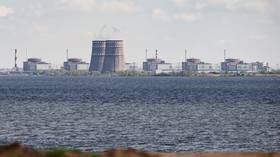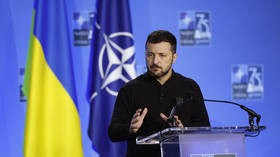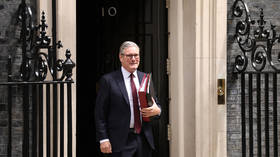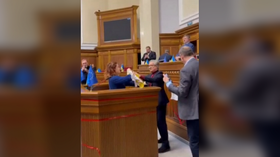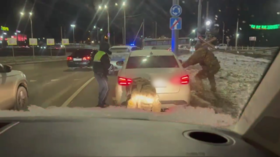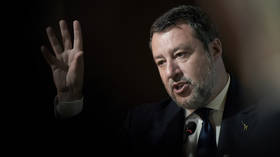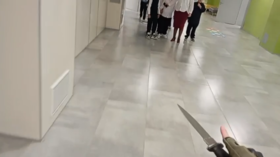Radiation threat assessed around nuclear site ‘attacked by Ukraine’
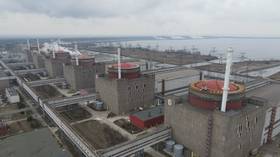
The Russian-controlled Zaporozhye nuclear power plant did not sustain any critical damage as a result of shelling by Ukrainian forces this week, according to Vladimir Rogov, a member of the region’s military-civil administration.
In terms of nuclear safety, everything is in order in the vicinity of the plant and background radiation levels are normal, Rogov said on Friday in an interview with Rossiya-24 news channel.
“The operation of the reactors was not disrupted as a result of the shelling,” he explained. However, the official noted that the attack had destroyed part of a building belonging to the region’s emergency services and one of the shells landed just ten meters away from a radioactive waste storage site.
Rogov claimed that the specific division of the Ukrainian Armed Forces responsible for the attack had been identified, and suggested that it had used Western-supplied ammunition.
“It was the terrorists from the 44th artillery brigade of the Armed Forces of Ukraine, militants of Zelensky. They fired from Nikopol with 152-millimeter guns, with the intent to strike the Zaporozhye nuclear power plant,” Rogov stated.
His assessment of who was responsible for the attack has been corroborated by the Russian Defense Ministry, which released a statement on Thursday, claiming that the attack carried out by Kiev’s 44th artillery brigade had partially damaged a thermal power plant and equipment used for cooling the nuclear reactors.
“Only thanks to the skillful, competent and effective actions of the units of the Russian Armed Forces to cover the nuclear power facility, the critical infrastructure of the nuclear power plant was not damaged and the operation of the reactors was not disrupted,” the ministry added.
The Zaporozhye nuclear power plant, which is considered to be the largest of its kind in Europe, was seized by Russian forces in late February, when Moscow launched its military operation in the neighboring country. The facility continues to operate with Ukrainian staff under Russian control.
According to the Russian military, Ukrainian forces have repeatedly fired artillery and rockets at the plant since late July, and have allegedly used drones to strike at the facility. Moscow has described Kiev’s actions as “nuclear terrorism.”
Kiev has in turn claimed that Russia was the one targeting the plant in an alleged plot to discredit Ukraine and has insisted that Moscow has been using the facility as a military base, keeping troops and heavy weapons there.
Russia’s permanent representative to the UN Vassily Nebenzia has in response insisted that “basic logic” suggests that Moscow has no reason to target the facility or its own troops who control it.
Addressing a UN Security Council briefing on Thursday, the diplomat stated that “strikes were launched from heavy artillery and MLRS located on the Dnieper’s right bank,” the Ukrainian-held territory in Dnepropetrovsk Region. He added that the Ukrainian Armed Forces were targeting “concrete-protected storages of radioactive waste”. If a nuclear disaster does occur as a result of the shelling, all responsibility will be on “the Western sponsors of the Kiev regime,” Nebenzia said.
The head of the UN’s nuclear watchdog, the International Atomic Energy Agency (IAEA), Rafael Grossi, told the UN Security Council on Thursday that the situation at the plant was under control and that there was “no immediate danger” to its safety. At the same time, he called reports his agency received from Russia and Ukraine “contradictory” and urged both sides to provide the IAEA access to the facility “as soon as possible.”


